Do Cats Really Hate Water?
BEHAVIOUR & TRAVEL
07 Jun, 2022
5 minutes
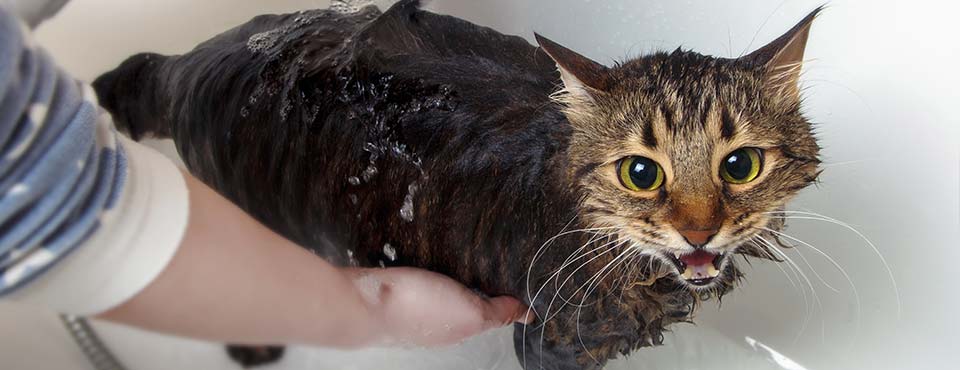
It’s a fairly well-known fact that cats have an aversion to water. However, this is not actually true of all cats. Some large cats, such as tigers, commonly take a dip to cool off and there are even a few domesticated breeds that are known to enjoy a little swim now and then. For the most part however, most domestic cats will go to great lengths to avoid getting wet. Behaviorists and cat experts have come up with some theories to explain this tempestuous relationship between cats and water.
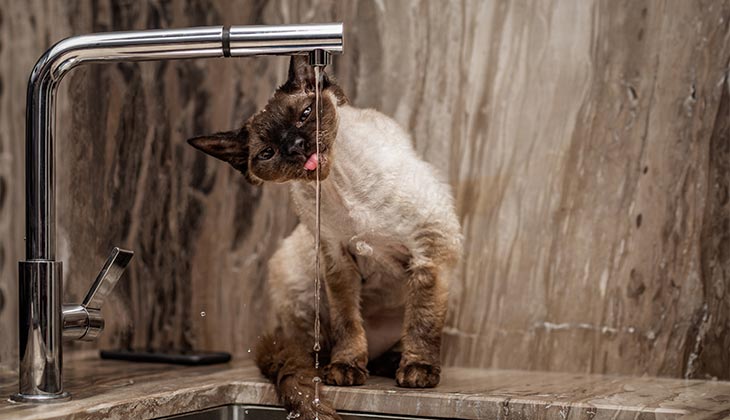
EVOLUTION
One theory as to why cats dislike water so much suggests that because the species evolved in dry climates, they had little exposure to rivers or lakes. Aside from drinking water, felines didn’t see much water and as they evolved, it continued to be an element they were unfamiliar with and to this day, cats innately avoid it.
THE NOSE KNOWS
Your cat has an incredibly well-developed sense of smell which is not only used to sniff out odors of prey, enemies and friends, but is also crucial for his or her own sense of orientation. A cat’s own odor emanates from glands located on the head and this helps orient him or her to find familiar locations. If a cat gets wet, his or her body odor is temporarily lost. Once dry, the cat will lick his or her entire body in order to restore his or her usual odor.
ALL ABOUT THE FUR
The main reason cats probably don’t like getting wet is because of what water does to their fur. Cats spend a lot of their day grooming themselves. In fact, they are downright zealous about it! Wet fur however, is extremely uncomfortable and because of the nature of your cat’s fur, it takes a long time to dry. Wet fur is also heavier than dry fur and it makes your cat less nimble, slower on the go, and that impacts his or her natural instinct to run if your cat feels threatened.
SHOCK FACTOR
Whether the water is warm or cold, most cats react to being in water pretty negatively – as if they are in shock. And if your cat accidentally falls into a full bathtub, this can really be a frightening experience, making him or her fearful of water for the rest of his or her life.
Your cat’s body temperature also contributes to his or her discomfort. When your cat’s fur is wet, his or her body temperature will cool down rather quickly. This is because the fur and the skin both perform a protective heating function, which only operates effectively when the fur is dry.
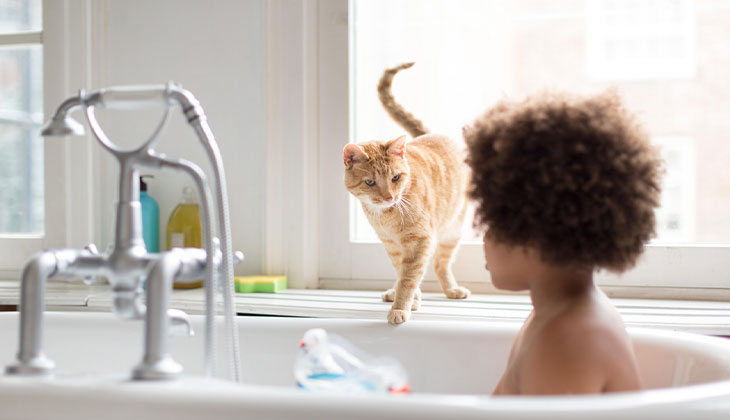
HOW ABOUT A WARM BATH?
Cats take care of themselves and maintain their fur very well. Your water-shy feline should not be bathed or washed without good reason and only in serious cases is a full bath really necessary. If you do need to bathe your kitty, start getting him or her used to the bathing process in small steps. Be patient, slow and mindful. If your cat exhibits signs of stress, such as incessant crying or meowing and/or panting or heavy breathing, stop and try again in several hours or the next day. If all else fails, take your cat to a groomer and leave bathing to the professionals.
WHY DOES MY CAT PLAY IN THE FAUCET?
Despite the general rule that cats do not like to be submerged in water, many cats do seem to enjoy playing with running water or dripping water, such as out of a faucet. Experts believe cats are drawn to the movements of the water and the sounds it makes when it drips, all of which stimulate a cat’s instinctual drive to catch prey. When only your cat’s paws are getting wet, he or she may find it more acceptable.
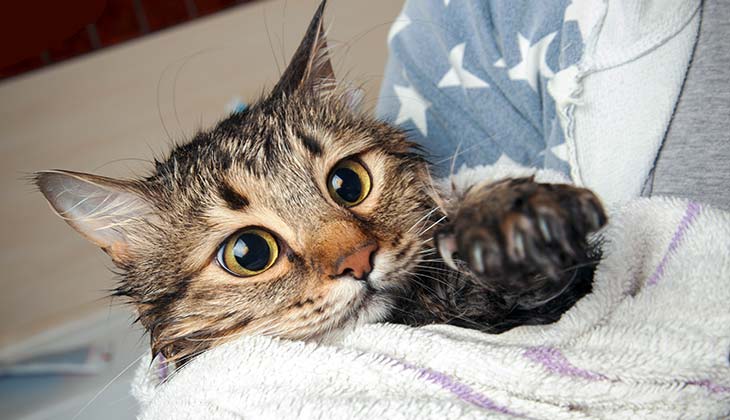
DO ALL CATS HATE WATER?
Some breeds of domesticated cats actually enjoy the occasional swim. These breeds include the Maine Coon, Bengal and Turkish Van. These cats are generally less fearful of water and they are all unique because of the texture of their fur, which makes them more water-resistant than other breeds. These cats also have small webs between their toes.
As a rule of thumb, it’s a good idea to follow your cat’s lead when it comes to getting wet. Avoiding water has seemed to work out well for cats and their ancestors all the way back to Ancient Egypt!
RELATED POSTS
-
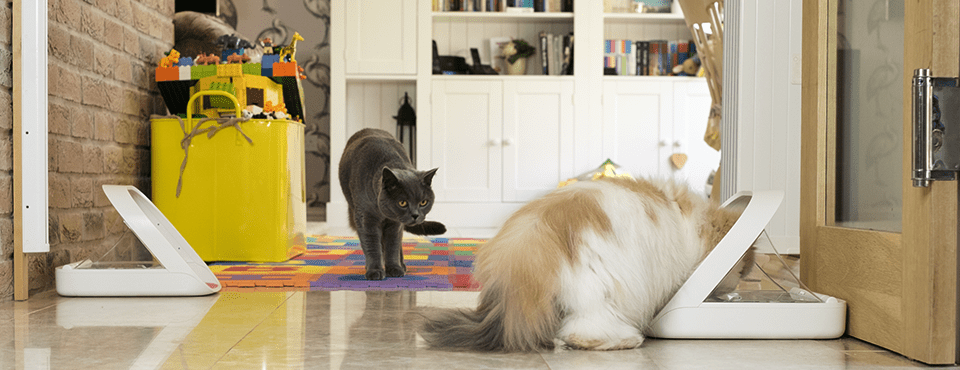
-

-

As a pet owner, you want your dog to have the best quality of life. Owners are able to recognize if their dog’s temperament is the same, they’re playful and active, seem comfortable, and enjoy their food normally.
-
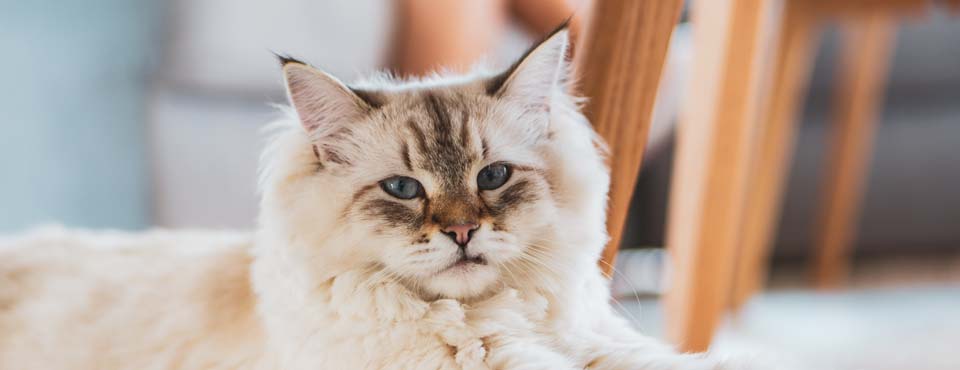
Dental health in cats is very important for their development and health. Read more here and find out how to protect them.






